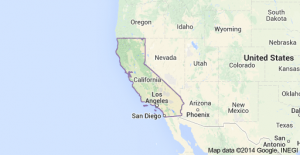LOS ANGELES – California has reached the breaking point, says a Silicon Valley venture capitalist who is pushing a proposal to divide the nation’s most populous state into six separate states.
California has grown so big, so inefficient, it’s essentially ungovernable, according to a ballot initiative that could reach voters as early as November.
The state is home to 38 million people and is by itself among the world’s top 10 economies.
“Vast parts of our state are poorly served by a representative government,” according to Tim Draper’s plan, which cleared a key government hurdle this week to qualify for the ballot. California residents “would be better served by six smaller state governments.”
In an interview Thursday, Draper said he has seen a state once regarded as a model slide into decline: Many public schools are troubled, transportation and other infrastructure systems are outdated, spending on prisons has soared.
Without change “it will get worse,” he warned. “California is not working.”
Earlier this week, Draper received approval from the state to begin collecting petition signatures to qualify the proposal for the ballot. He needs about 808,000 by mid-July to make the cut. It’s also possible the proposal could be delayed until 2016
But California has proven resilient against attempts to split it. Since its founding in 1850, proposals have suggested California should be two states, or three, or four.
“It’s certainly fun to talk about,” said Raphael Sonenshein, executive director of the Pat Brown Institute of Public Affairs at California State University, Los Angeles. But “its prospects are nil.”
Draper, in documents he submitted to the Secretary of State’s Office, recommends dividing California regionally, including establishing a state called Silicon Valley, which would include San Francisco and nearby counties that are home to technology giants like Facebook and Apple.
Los Angeles would become part of the new state of West California. The state’s farming heartland would become Central California. San Diego would be the largest city in the new South California.
Even if voters approve the proposal, Congress would have to endorse the idea of creating six new states – and adding 10 U.S. senators. Congress, under the U.S. Constitution, must approve the creation or division of any states.
“I don’t think anyone is going to give California 12 Senate seats,” Sonenshein said. The Senate now has 100 seats.
